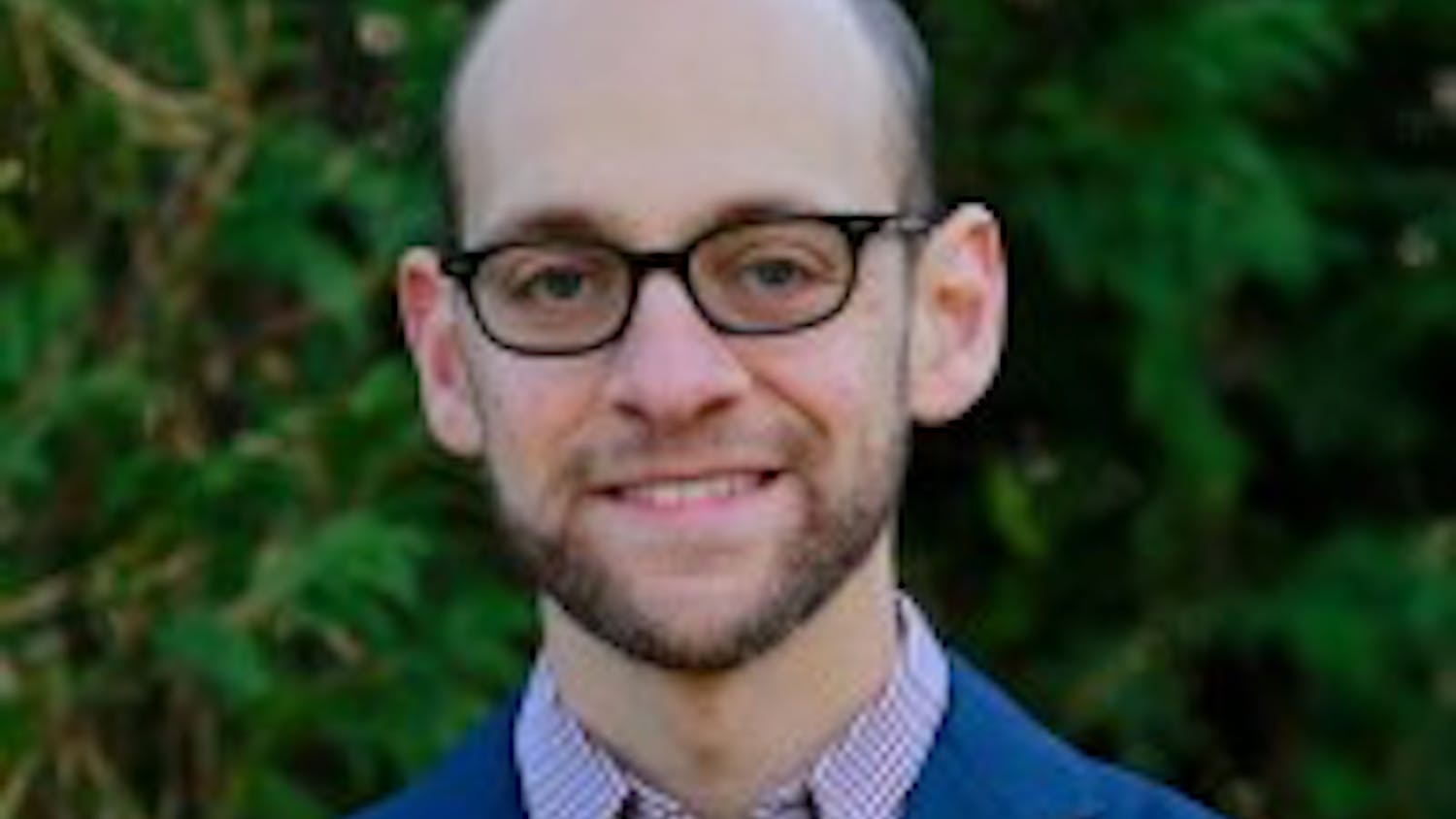[caption id="attachment_15544" align="alignnone" width="838"] Tammy Quach, a Buddhist student on campus, praises Buddha through meditation and appreciating nature. Photo via PublicDomanPictures.net/Charles Rondeau.[/caption]
Tammy Quach sits down on the Green, admires the campus’ beauty, listens to the wind and birds, clears her mind through accepting every good and bad energy and thought, takes a deep breath, and exhales.
Quach, a junior elementary special education and environmental studies major, is a practicing Buddhist at Seton Hall who meditates and prays on the Green before going to bed.
“I try to be mindful and purposeful with my meditation,” Quach said. “When I pray, I praise Buddha and other higher powers. I give thanks and love. I can’t really describe the process, but it’s very beautiful.”
According to BBC, meditation is a way for Buddhists to take control of the mind so that it becomes peaceful and focused, leading the meditator to become more aware.
Buddhism practice can include meditation, rituals and traditions which allow an individual to connect with the eternal Buddha to become more mindful.
“Buddhism can be interpreted in many different ways. To me, being Buddhist is more of a philosophy or way to live life,” Quach said. “Being Buddhist allows me to understand and overcome negative emotions such as anger, jealousy, sadness, or ignorance and create a positive mind of compassion, wisdom, love and happiness.”
Raised and taught Buddhism in her first language, Vietnamese, Quach has carried her religion with her throughout her life, especially when deciding to attend SHU.
In making her decision to become a Pirate, Quach said that she has always wanted to go to a university that was small and felt more like a community.
She added that she loves learning about religions and being surrounded by believers, whether they believe in God, Buddha, or another higher power.
Dr. Jeff Rice, assistant professor and director of the Asian Studies program in the department of languages, literatures and cultures, said that Buddhism spread to China from India shortly before the collapse of the Han Dynasty.
“In addition to bringing new religious and philosophical ideas, it also arrived as a mature institution with resources to build things like schools, libraries, monasteries, monuments, health clinics, etc.,” Rice said. “In subsequent centuries many political rulers were closely allied with Buddhist institutions, at least in part due to these social services that Buddhism provided, and Buddhist monasteries became large estates with significant economic, political, and cultural influence.”
Rice added that when rulers in Korea and Japan adopted the model of government based on Tang dynasty China, this included using a combination of the Chinese writing system and the official establishment of state sponsored Buddhist temples.
“Subsequently, when Buddhism went into decline throughout India, it continued to develop new branches and evolve throughout East Asia,” Rice said.
While SHU is a Catholic university, a broad range of students of differing religions attend and continue to practice their own religion.
Quach explained that this diverse atmosphere allows her to learn about religions, which can ultimately help her become a better person.
“I truly believe that every religion carries the same message of compassion, love, and forgiveness,” Quach said. “All religion has a common ground and common practice. All religions try to create harmony for the world and the people in it.”
Additionally, the university offers courses like Journey of Transformation and Christianity and Culture in Dialogue, which discuss universal views, philosophies and religions so as to introduce students to different perspectives. In these types of courses, Quach said she was able to express her thoughts on her religious practices.
Rice said he liked that SHU is a Catholic school that is open to other religions because it encourages dialogue about matters of religious beliefs and practices.
“I found at secular schools there is a tendency to not talk about religion,” Rice said. “I think that comes from a good motive, which is to be respectful of everyone’s diverse beliefs, but ends up stifling dialogue instead. By acknowledging the Catholic faith and incorporating it into the curriculum but also welcoming students and faculty from any background, encourages dialogue, which is important for mutual understanding in a global society.”
William Szilagyi, a senior diplomacy and international relations and philosophy major, said the first thing that crossed his mind when thinking about the intersection of Catholicism at Seton Hall and other religions practiced here, is what Pope Francis said when discussing those who don’t necessarily believe in Jesus.
Pope Francis said people can still find redemption a virtuous life by doing good and Catholics shouldn’t hinder those who practice a different faith as long as that faith allows them to do good in the world.
Specifically, Pope Francis said in a homily in 2013, “Just do good, and we’ll find a meeting point.”
“I think Seton Hall is interested in educating its students on how to become servant leaders that do good in the world, no matter what creed they follow,” Szilagyi said. “So, just because someone who doesn’t follow Catholicism and instead follows another religion like Buddhism doesn’t mean they won’t fit in at Seton Hall.”
Nisha Desai can be reached at nisha.desai@student.shu.edu.
Tammy Quach, a Buddhist student on campus, praises Buddha through meditation and appreciating nature. Photo via PublicDomanPictures.net/Charles Rondeau.[/caption]
Tammy Quach sits down on the Green, admires the campus’ beauty, listens to the wind and birds, clears her mind through accepting every good and bad energy and thought, takes a deep breath, and exhales.
Quach, a junior elementary special education and environmental studies major, is a practicing Buddhist at Seton Hall who meditates and prays on the Green before going to bed.
“I try to be mindful and purposeful with my meditation,” Quach said. “When I pray, I praise Buddha and other higher powers. I give thanks and love. I can’t really describe the process, but it’s very beautiful.”
According to BBC, meditation is a way for Buddhists to take control of the mind so that it becomes peaceful and focused, leading the meditator to become more aware.
Buddhism practice can include meditation, rituals and traditions which allow an individual to connect with the eternal Buddha to become more mindful.
“Buddhism can be interpreted in many different ways. To me, being Buddhist is more of a philosophy or way to live life,” Quach said. “Being Buddhist allows me to understand and overcome negative emotions such as anger, jealousy, sadness, or ignorance and create a positive mind of compassion, wisdom, love and happiness.”
Raised and taught Buddhism in her first language, Vietnamese, Quach has carried her religion with her throughout her life, especially when deciding to attend SHU.
In making her decision to become a Pirate, Quach said that she has always wanted to go to a university that was small and felt more like a community.
She added that she loves learning about religions and being surrounded by believers, whether they believe in God, Buddha, or another higher power.
Dr. Jeff Rice, assistant professor and director of the Asian Studies program in the department of languages, literatures and cultures, said that Buddhism spread to China from India shortly before the collapse of the Han Dynasty.
“In addition to bringing new religious and philosophical ideas, it also arrived as a mature institution with resources to build things like schools, libraries, monasteries, monuments, health clinics, etc.,” Rice said. “In subsequent centuries many political rulers were closely allied with Buddhist institutions, at least in part due to these social services that Buddhism provided, and Buddhist monasteries became large estates with significant economic, political, and cultural influence.”
Rice added that when rulers in Korea and Japan adopted the model of government based on Tang dynasty China, this included using a combination of the Chinese writing system and the official establishment of state sponsored Buddhist temples.
“Subsequently, when Buddhism went into decline throughout India, it continued to develop new branches and evolve throughout East Asia,” Rice said.
While SHU is a Catholic university, a broad range of students of differing religions attend and continue to practice their own religion.
Quach explained that this diverse atmosphere allows her to learn about religions, which can ultimately help her become a better person.
“I truly believe that every religion carries the same message of compassion, love, and forgiveness,” Quach said. “All religion has a common ground and common practice. All religions try to create harmony for the world and the people in it.”
Additionally, the university offers courses like Journey of Transformation and Christianity and Culture in Dialogue, which discuss universal views, philosophies and religions so as to introduce students to different perspectives. In these types of courses, Quach said she was able to express her thoughts on her religious practices.
Rice said he liked that SHU is a Catholic school that is open to other religions because it encourages dialogue about matters of religious beliefs and practices.
“I found at secular schools there is a tendency to not talk about religion,” Rice said. “I think that comes from a good motive, which is to be respectful of everyone’s diverse beliefs, but ends up stifling dialogue instead. By acknowledging the Catholic faith and incorporating it into the curriculum but also welcoming students and faculty from any background, encourages dialogue, which is important for mutual understanding in a global society.”
William Szilagyi, a senior diplomacy and international relations and philosophy major, said the first thing that crossed his mind when thinking about the intersection of Catholicism at Seton Hall and other religions practiced here, is what Pope Francis said when discussing those who don’t necessarily believe in Jesus.
Pope Francis said people can still find redemption a virtuous life by doing good and Catholics shouldn’t hinder those who practice a different faith as long as that faith allows them to do good in the world.
Specifically, Pope Francis said in a homily in 2013, “Just do good, and we’ll find a meeting point.”
“I think Seton Hall is interested in educating its students on how to become servant leaders that do good in the world, no matter what creed they follow,” Szilagyi said. “So, just because someone who doesn’t follow Catholicism and instead follows another religion like Buddhism doesn’t mean they won’t fit in at Seton Hall.”
Nisha Desai can be reached at nisha.desai@student.shu.edu.

Comments




